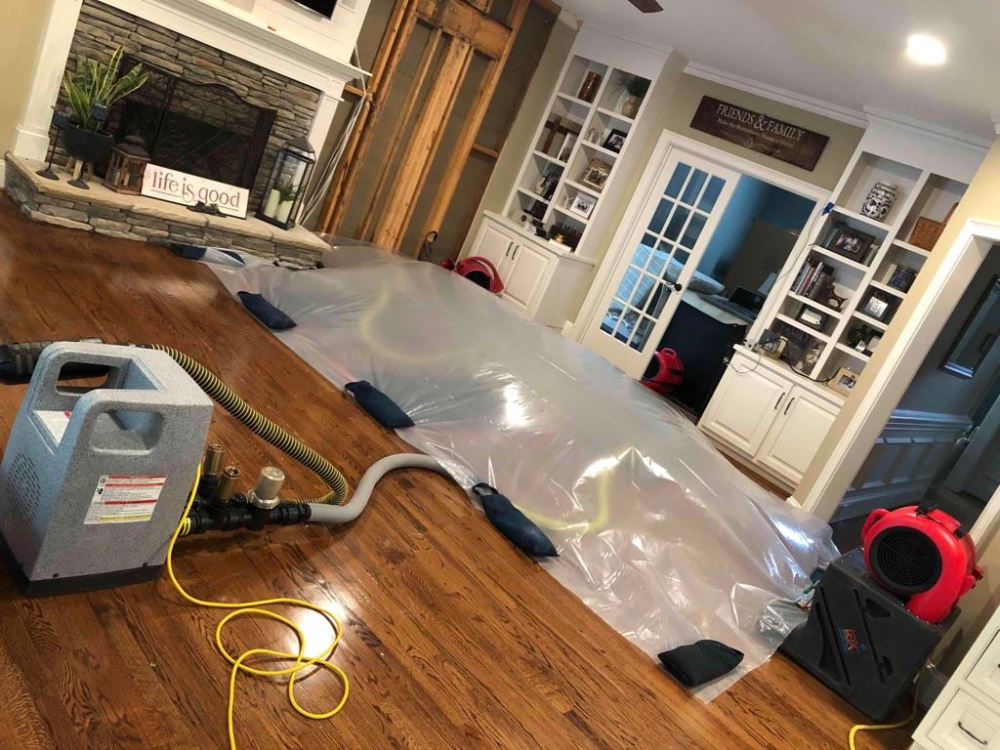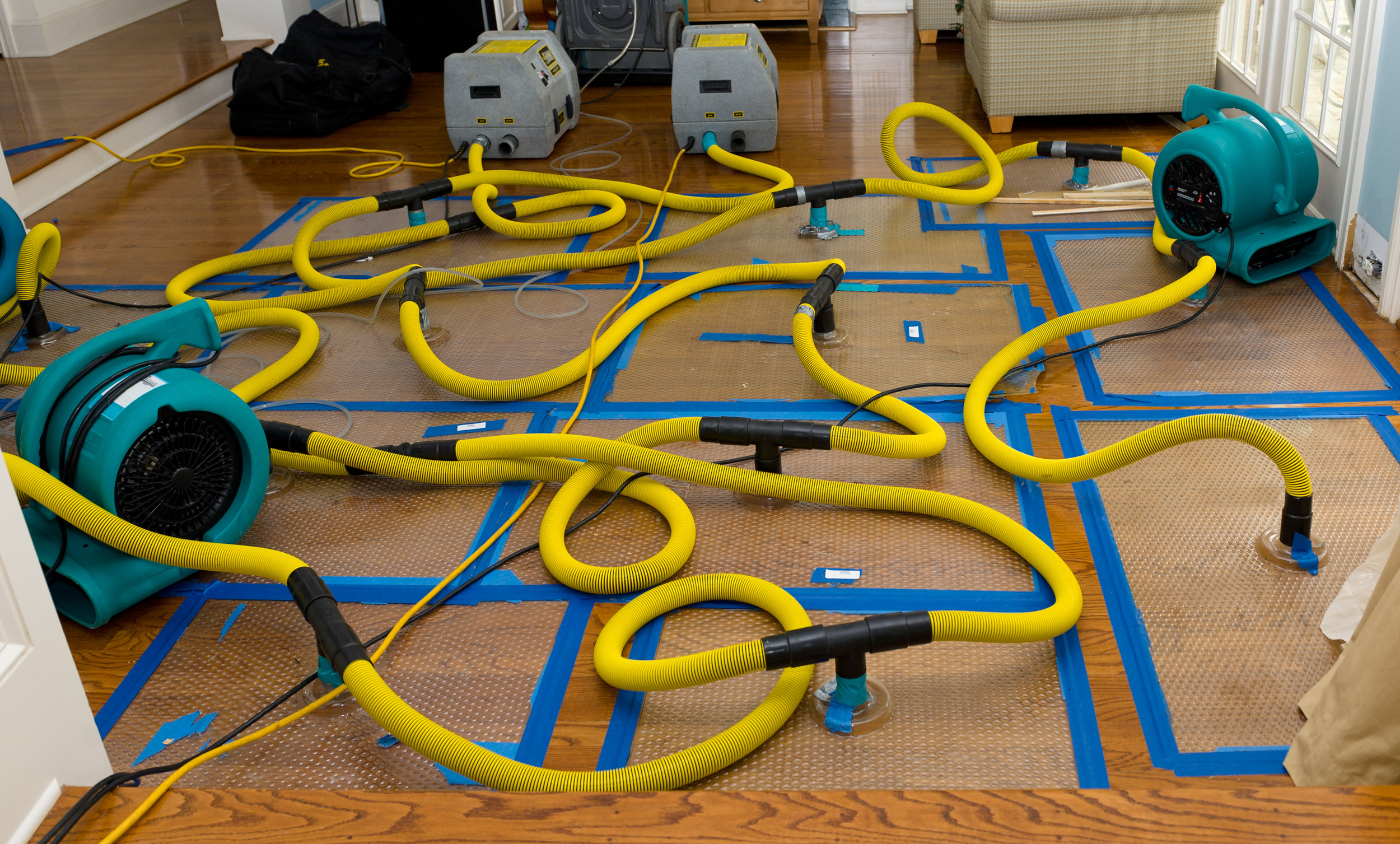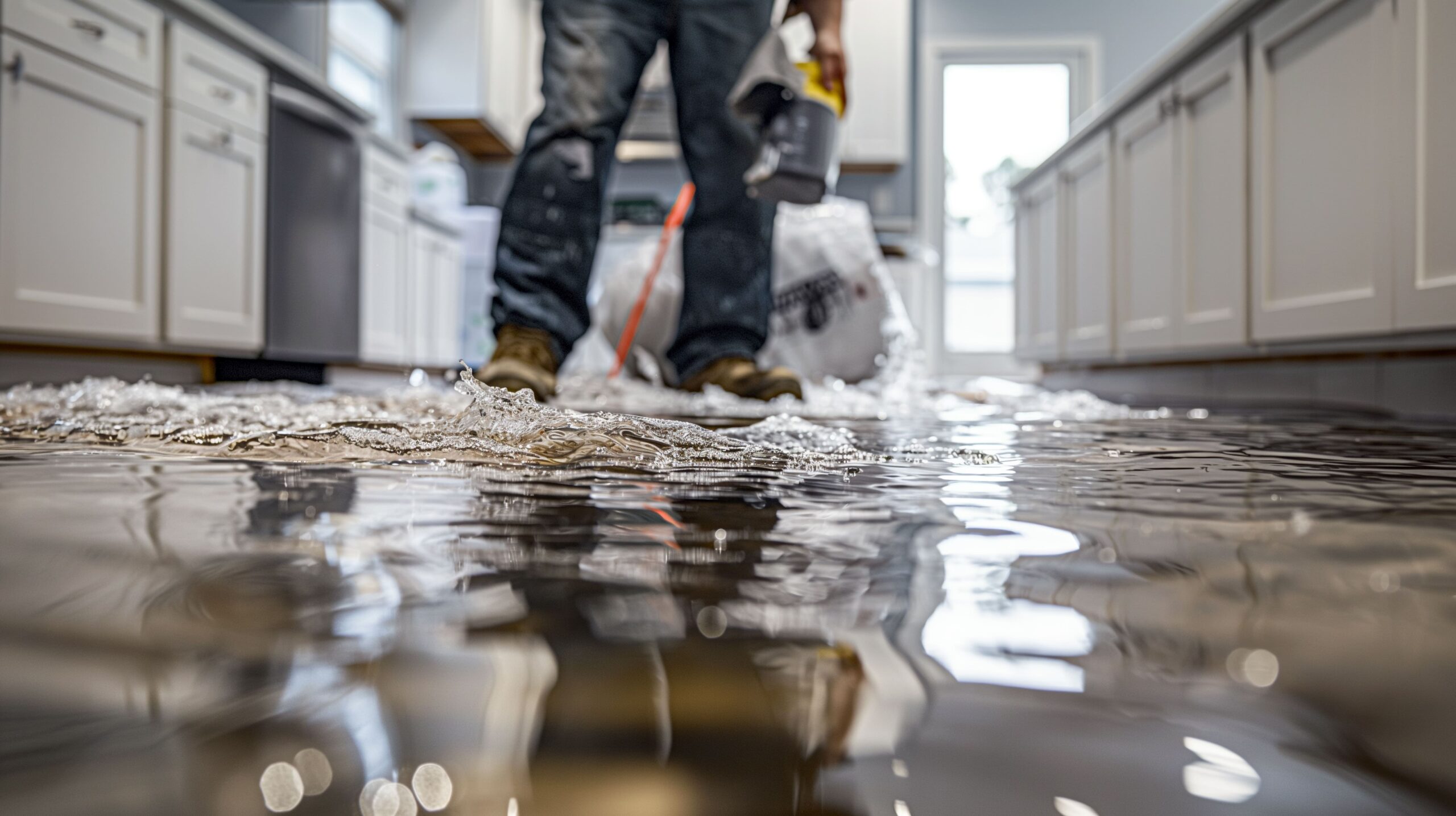Essential Actions to Adhere To for Reliable Water Damages Reconstruction in your house
When confronted with water damages in your house, recognizing the vital steps for efficient remediation can make all the distinction. You need to analyze the damage and warranty safety prior to dealing with the problem. Quiting the resource of water is necessary, yet it's simply the start. When you've managed that, there's a collection of activities you must require to safeguard your home from further problems. Let's discover what you need to do next.
Analyze the Damage
When you uncover water damage in your home, the very first step is to evaluate the damages thoroughly. Beginning by identifying the source of the water breach. Look for leakages, ruptured pipes, or various other concerns causing the issue. Next off, analyze the influenced locations for visible signs of damage, consisting of bending, mold and mildew, or staining growth. Do not fail to remember to look in concealed places like behind walls or under flooring, as water can seep into these locations unnoticed.Document the damages by taking clear photos and notes. When going over the situation with your insurance policy copyright or restoration experts, this will certainly assist you. Take note of the type of materials influenced, as different materials need different remediation techniques. Ultimately, assess the level of the damage. Is it substantial or minor? Comprehending the extent will certainly guide you in choosing whether to handle it on your own or call in the experts for a much more substantial repair process.

Make sure Security
Prior to you start any kind of remediation job, guaranteeing your security is important. Initially, examine the condition of your home. If the water's deep or if you notice electrical hazards, don't enter the area. Switch off the electrical energy and gas supply to avoid accidents. Wear protective gear like masks, gloves, and boots to shield on your own from impurities or mold.It's essential to remain familiar with your environments; look for slippery surfaces and sharp things. If the water is from a sewage backup, treat it as dangerous waste. Maintain pet dogs and youngsters far from impacted locations to stay clear of exposure.Once you have actually taken these preventative measures, you can continue with the restoration procedure. Bear in mind, your security comes first, and if you're ever uncertain, it's finest to speak with a professional. Taking these steps will certainly aid assure you're prepared to tackle the remediation safely and efficiently.
Stop the Source of Water
After ensuring your security, the following action is to quit the resource of water. Recognize where the leak is originating from. Maybe a burst pipe, a malfunctioning appliance, or even heavy rain getting in with a damaged roofing system. If it's a plumbing concern, switch off the main water supply to your home to prevent additional flooding. For appliances, disconnect them and shut down their water system valves.If the source is outside, like rain, try to divert it far from your home utilizing sandbags or other obstacles. For minor leakages, you may be able to use tape or a sealer briefly up until a specialist can repair it. Remember, resolving the resource swiftly is vital to lessening damage and preventing mold and mildew development. As soon as you've quit the water, you'll be in a better placement to proceed to the next action in the reconstruction procedure.

Get Rid Of Excess Water
Act swiftly to get rid of excess water, as standing water can bring about more extensive damage and mold growth. Gather your tools: a wet/dry vacuum, buckets, and towels. If the water is superficial, you can make use of towels to take in the dampness. For deeper water, a wet/dry vacuum cleaner is your ideal wager. See to it to empty the vacuum regularly to prevent overflow.If the water is contaminated, like from a sewage back-up, wear safety gear, consisting of gloves and masks, to maintain yourself safe. Once you've gotten rid of as much water as possible, inspect for surprise pockets of moisture in edges and under furnishings, as these can harbor mold.Don' t fail to remember to switch off electrical home appliances and power electrical outlets in wet areas to stop hazards. This preliminary action is vital in minimizing damage and establishing the phase for an effective remediation process.
Dry and Dehumidify the Location
It's essential to dry and evaporate the location completely as soon as you've gotten rid of the excess water. Start by making use of dehumidifiers efficiently to pull wetness out of the air and prevent mold and mildew development. Watch on humidity levels to assure the space dries entirely.
Eliminate Standing Water
To successfully tackle water damage, you require to focus on eliminating standing water as swiftly as possible. Start by collecting needed tools, like a wet/dry vacuum or a pump, relying on the volume of water. If the water is superficial, a vacuum cleaner needs to suffice. For larger quantities, a pump is extra effective. While functioning, see to it to wear safety gear to keep on your own secure from contaminants. As you remove the water, take note of hidden locations like under furniture or in corners where water could collect. Your space will certainly start to dry out as soon as you've removed the bulk. This step is essential, as lingering water can cause mold and mildew development and extra comprehensive damage.
Use Dehumidifiers Successfully
Just how can you properly make use of dehumidifiers to completely dry and dehumidify your area? Begin by putting your dehumidifier in the most affected location, preferably where water damages is most serious. Make sure to shut all doors and windows to create a sealed setting. Switch on the dehumidifier and established it to the ideal moisture level, typically around 30-50%. Vacant the water collection storage tank regularly, or think about making use of a version with a continual drain option for ease. When possible, utilize fans to improve air flow, aiding the dehumidifier work extra efficiently. Maintain the dehumidifier running until you're positive that the location is completely dried, stopping mold and mildew growth and extra damages (Smoke Damage Restoration). This action is essential for effective water damages repair
Display Moisture Degrees
Surveillance humidity levels is necessary during the drying process, as it assists assure your space stays cost-free from excess moisture. Purchase a trusted hygrometer to track humidity accurately. Ideally, you wish to keep levels between 30% and 50%. You may require to readjust your dehumidifiers or followers to improve air movement if moisture readings rise over this array. Check the readings on a regular basis, especially in areas susceptible to dampness, like basements or shower rooms. If you discover consistent high moisture, take into consideration increasing ventilation or making use of additional dehumidifiers. Staying on top of these levels not only speeds up the drying process however additionally protects against mold and mildew development, guaranteeing your home keeps safe and comfy.
Tidy and Disinfect Affected Surfaces

Restore and Repair Your Home
After cleaning and sanitizing the impacted locations, it's time to bring back and repair your home. Begin by reviewing the damages. Inspect for structural concerns, like deteriorated floors or wall surfaces, and attend to any essential fixings. Changing damaged drywall or floor covering is important for both aesthetic appeals and safety.If your furniture or personal belongings were impacted, consider whether they can be restored or need substitute. Clean or skillfully restore things where possible.Next, repaint wall surfaces and touch up any kind of areas that require interest. This not only boosts appearance yet additionally shields surface areas from future water damage.Don' t forget to examine your plumbing and devices for leakages, making sure whatever's operating correctly. Finally, take into consideration installing a dehumidifier to protect against future wetness issues. By taking these actions, you'll restore your home to its previous magnificence and develop a much safer living environment.
Often Asked Questions
Just How Long Does Water Damage Restoration Typically Take?
Water damages remediation commonly takes anywhere from a few days to a number of weeks, depending on the level of the damages (Water Damage Repair). You'll intend to examine the situation swiftly to minimize more problems and assure appropriate reconstruction
Will My Insurance Cover Water Damages Remediation Costs?
Your insurance policy might cover water damages reconstruction costs, yet it get more info relies on your policy. Inspect your insurance coverage information and call your insurance agent to clarify what's consisted of and what you require to sue.
Can I Deal With Water Damages Restoration Myself?
You can handle water damage repair on your own, but it's vital to evaluate the circumstance. If it's extensive, you might intend to call specialists. Constantly focus on safety and security and assure you have actually got the right devices.
What Are the Indications of Hidden Water Damage?
You may observe signs of hidden water damage like warped wall surfaces, moldy odors, or discoloration. If your floorings feel squishy or you area mold and mildew, it's time to investigate even more prior to the situation intensifies.
Just How Can I Prevent Future Water Damage in My Home?
To stop future water damage in your home, you need to frequently inspect pipes, seal fractures, keep rain gutters, and warranty appropriate drainage. Setting up a sump pump and dampness barriers can additionally aid maintain your space completely dry. When you uncover water damage in your home, the very first action is to assess the damage extensively. Act quickly to eliminate excess water, as standing water can lead to extra substantial damages and mold development. To properly tackle water damage, you need to concentrate on getting rid of standing water as quickly as possible. As you eliminate the water, pay focus to concealed areas like under furniture or in corners where water may gather. Water damages reconstruction commonly takes anywhere from a few days to several weeks, depending on the extent of the damage.
Comments on “Why Water Damage Restoration St George UT Should Be Your First Call After a Leak”